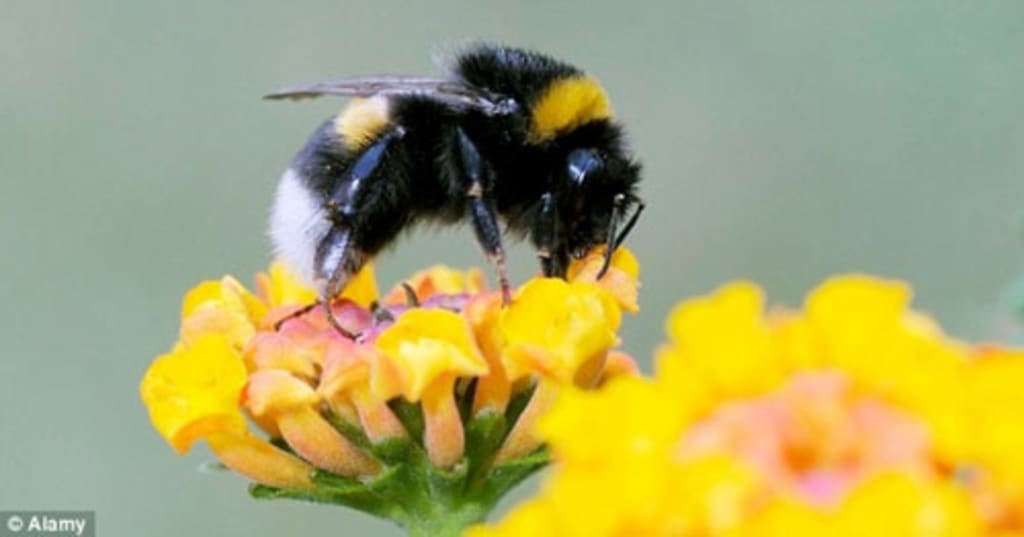
In a study published in the journal Science in 2019, researchers from Queen Mary University of London set up an experiment to test the learning abilities of bumblebees. They trained some bumblebees to solve a puzzle where they had to move a small ball to the center of a platform to receive a sugary reward.
Then, the researchers placed untrained bumblebees in the same environment to see if they could learn how to solve the puzzle by watching their trained peers. The results showed that the untrained bumblebees were able to learn how to solve the puzzle significantly faster when they had the opportunity to observe and mimic the actions of their trained peers.
This study suggests that bumblebees have the ability to learn from their peers, which could have important implications for understanding the behavior of other insects and even animals.
Certainly! The study also found that the bumblebees were able to adapt their puzzle-solving techniques based on their own experiences and the experiences of their peers.
In one part of the experiment, the researchers changed the position of the ball on the platform to see if the bumblebees could adjust their strategies accordingly. The trained bumblebees were able to solve the puzzle in the new configuration, and the untrained bumblebees were able to learn the new strategy by observing their trained peers.
Interestingly, the study also showed that bumblebees were more likely to learn from peers of the same species. When given the choice between observing a trained bumblebee and a trained honeybee, the untrained bumblebees were more likely to watch the bumblebee.
Overall, this study provides further evidence of the learning abilities of bumblebees and the importance of social learning in their behavior. It also raises questions about the mechanisms behind social learning in insects and the potential for similar behavior in other species.
Certainly! The study also suggests that the ability of bumblebees to learn from their peers may have evolutionary implications.
Learning from peers can be a more efficient way to acquire new skills and knowledge than trial and error learning, which can be time-consuming and costly in terms of energy and resources. By learning from each other, bumblebees may be able to adapt more quickly to changes in their environment, such as the availability of food sources or the presence of predators.
This could be particularly important in the context of climate change, which is expected to have significant impacts on the behavior and distribution of many insect species, including bumblebees. By being able to learn from their peers, bumblebees may be better equipped to cope with these changes and survive in a rapidly changing world.
In addition, the study highlights the importance of social interactions in the behavior of insects, which are often thought of as solitary creatures. It suggests that social learning and other forms of social behavior may be more widespread in the insect world than previously thought, and that insects may have more complex cognitive abilities than we give them credit for.
Indeed! The findings of the study have also raised questions about the potential for cultural transmission in bumblebees.
Cultural transmission refers to the transfer of knowledge and behavior from one generation to the next through social learning. This can lead to the development of cultural traditions within a population, which can persist over many generations.
While the study did not directly investigate cultural transmission in bumblebees, the fact that the bees were able to learn from their peers and adapt their behavior suggests that there may be potential for cultural transmission in these insects.
If cultural transmission does occur in bumblebees, this could have important implications for the evolution and behavior of the species. For example, it could lead to the development of specialized behaviors and strategies within different populations of bumblebees, depending on their environment and the social interactions within their group.
Overall, the study highlights the importance of social learning and social interactions in the behavior and evolution of bumblebees and other insects. It also raises interesting questions about the potential for cultural transmission in these creatures, which could have implications for our understanding of animal behavior and evolution more broadly.
Certainly! The study on bumblebees and social learning has also shed light on the cognitive abilities of insects and the potential for insect intelligence.
In the past, insects were often thought of as simple creatures with limited cognitive abilities. However, recent research has shown that insects are capable of complex behaviors, such as problem-solving, decision-making, and social learning.
The study on bumblebees is just one example of this, and it suggests that insects may be capable of more sophisticated cognitive processes than previously thought.
This has implications for how we think about and treat insects. For example, if insects are capable of learning from their peers and adapting their behavior, it may be necessary to consider their social context and the impact of human activities on their social interactions when developing conservation strategies.
Overall, the study on bumblebees and social learning has opened up new avenues of research into the cognitive abilities of insects and the role of social interactions in their behavior and evolution. It underscores the need for further study and understanding of these fascinating creatures and the important roles they play in our ecosystems.
About the Creator
Adam MR24
Welcome to my page, where you will find valuable information that can change your life! Whether you're looking to improve your health, learn new skills, or simply gain a new perspective on the world, you've come to the right place.
Reader insights
Outstanding
Excellent work. Looking forward to reading more!
Top insight
On-point and relevant
Writing reflected the title & theme






Comments (9)
GOOD ARTICLE
COOL ARTICLE
GOOD ARTICLE
GOOD ARTICLE
Very important article for everyone
What a beauty
that's nice i love it that going good i like it it is so helpful thanks for this
Amazing that's nice i love it it's going well it is so helpful thanks for this
Wow that's nice i love it that going good i like it it is so helpful thanks for this